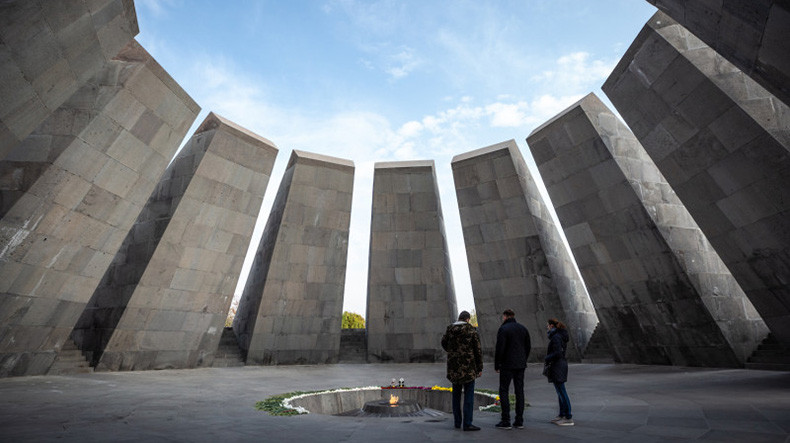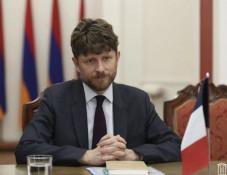
Foreign Policy: Israel’s refusal to recognize Armenian Genocide ‘shameful and immoral’
Both Armenians and Jews have been the victims of premeditated mass murder, and the Israeli government must put justice before political expediency and call the crime by its name, Israeli journalist Yossi Melman says in an article published by Foreign Policy American magazine on the 104th anniversary of the Armenian Genocide marked today.
Speaking about Tsitsernakaberd Hill in the Armenian capital of Yerevan, the author says it has striking similarities to Yad Vashem, the main Israeli memorial site that honors and commemorates the 6 million Jews who perished in the Holocaust.
He notes that the 144-foot-tall monument is meant to symbolize rebirth, adding the twelve slabs form a circle that represents the parts of Armenians’ historical homeland in present-day Turkey, and an eternal flame dedicated to those killed during the Armenian genocide lies in the center of the circle.
“Despite the shared experience of genocide, Israel and Armenia are worlds apart today. Israel has consistently refused to acknowledge that what happened to the Armenian people was a genocide. This decision doesn’t derive so much from a desire to monopolize victimhood and portray the Holocaust as a unique and unparalleled historical event. It is primarily a cynical political ploy.
“For many years, Israel feared Turkey’s wrath if it recognized the genocide. Since the late 1950s, Turkey had been a strong strategic ally of the Jewish state—one of its only friends in the Muslim world. There were close ties between the two nations’ intelligence and security establishments, and Turkey was an important and lucrative market for Israeli weapons. Whenever Israeli parliamentarians, human rights activists, and historians called for recognition of the Armenian genocide, the initiative was blocked by the government. Regardless of their ideology and political orientation, consecutive Israeli governments, knowing that any change of heart and policy would anger Turkey and jeopardize arms sales, placed economic interests before universal values. They agreed to define the genocide only as a “tragedy.”
“But in the past decade, relations between Turkey, under the leadership of Recep Tayyip Erdogan, and Israel have deteriorated. Arms sales were halted, and the clandestine intelligence cooperation aimed against the mutual enemy – Syria – was terminated,” the article says.
Melman also reminds that Israeli Prime Minister Benjamin Netanyahu's and his son Yair's regularly exchange verbal blows over Twitter with Erdogan, calling each other “tyrant,” “murderer,” and more.
He stresses that Israel's decision to not recognize the Armenian Genocide also stems from relations with Azerbaijan which is involved in the Nagorno Karabakh (Artsakh) conflict alongside Armenia.
“Israel’s behavior is a travesty of morality and history. It’s even more shameful because it comes from a nation that was built on and has risen from the ashes of genocide,” the author stresses.
"It is past time for Israel to stop its evasive language about Armenia in the service of crude economic interests. A genocide is a genocide. It is Israel’s moral obligation to humanity, and to the memory of the 6 million Jews murdered in the Holocaust, to recognize the Armenian Genocide, just as it has recognized the Rwandan genocide," the article concludes.
Related news
- Armenian leaders pay tribute to Armenian Genocide victims at Tsitsernakaberd
- Today marks 104th anniversary of Armenian Genocide
Newsfeed
Videos






























